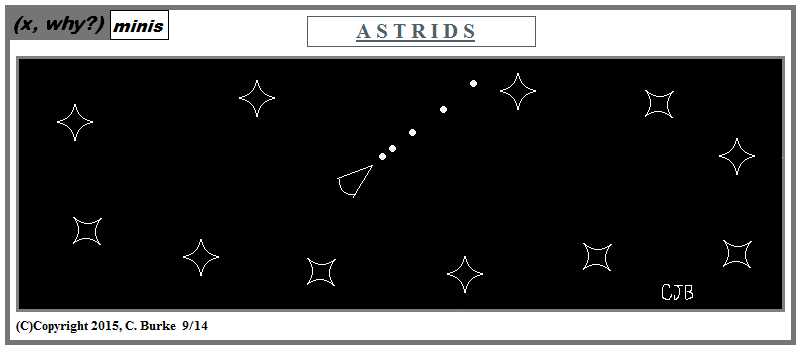Seems that I never got around to posting Parts 2, 3, and 4 of the non-Common Core Geometry test. Sorry for the delay.
Here are the questions, with answers and explanations, for the New York State Geometry Regents (not Common Core) exam, Part 2. There were 6 questions, each worth 2 credits. Partial credit may be earned for correct work on a problem without a solution, or for a problem with a solution that contains one computational or conceptual error. All work must be shown. In general, a correct answer without any work is worth 1 credit, unless that answer is given as a choice and an explanation is required.
Link to Part 1
Part 2
29. The image of after a reflection through the origin is R'S'. If the coordinates of the endpoints of are R(2,-3) and S(5,1), state and label the coordinates of R' and S '.[The use of the set of axes below is optional.]
In a reflection about the origin, P(x, y) -> P'(-x, -y)
R(2, -3) -> R'(-2, 3)
S(5, 1) - > S'(-5, -1)
30. A paper container in the shape of a right circular cone has a radius of 3 inches and a height of 8 inches. Determine and state the number of cubic inches in the volume of the cone, in terms
of π.
The Volume of a Right Circular Cone is found using, V = (1/3)Bh, where B is the area of the base. The area of the Base is πr2, so V = (1/3)πr2h = (1/3)π(3)2(8) = 24π.
31. In isosceles triangle RST shown below, RS = RT, M and N are midpoints of RS and RT, respectively, and MN is drawn. If MN = 3.5 and the perimeter of triangle RST is 25, determine and
state the length of NT.
MN is the midsegment, so ST is twice as long. Since MN = 3.5, ST = 7. RST is isosceles and the perimeter is 25, so x + x + 7 = 25. 2x + 7 = 25, 2x = 18, x = 9.
RS and RT have lengths of 9. N is the midpoint of RT, so NT is 1/2 of RT. NT = 4.5
32. In the diagram below, ABC is equilateral.
Using a compass and straightedge, construct a new equilateral triangle congruent to ABC in
the space below.
[Leave all construction marks.]
Make a point on the lower portion of the page. Call it P. Use the compass to measure the length of AB. Make a little arc. Go back to the point you made and, without changing the compass, make an arc. Make a point on the arc. Call it Q. Use the straightedge to make PQ. Still not changing the compass, make an arc from point P above the middle of the line segment. Make a similar arc from point Q. Where the two arcs intersect, make a point. Call it R. Use the straightedge to make PR and QR. PQR is an equilateral triangle.
For a visual reference, look at Method 1 on this MathBits page.
33. Write an equation of the line that is perpendicular to the line whose equation is 2y = 3x + 12 and that passes through the origin.
In slope-intercept form, the given line is y = (3/2)x + 6. A line perpendicular to it would have to have slope = -2/3. If it goes through the origin, the y-intercept is 0.
Therefore, y = (-2/3)x.
34. Rectangle KLMN has vertices K(0,4), L(4,2), M(1,-4), and N(-3,-2). Determine and state the coordinates of the point of intersection of the diagonals.
The diagonals of a rectangle bisect each other, so you just need to find the midpoint of either of the diagonals.
( (0 + 1)/2, (4 + (-4))/2 ) = (1/2, 0) or
( (4 + (-3))/2, (2 + -2)/2 ) = (1/2, 0).
That's it for Part II. Parts III and IV are coming soon. I hope.












